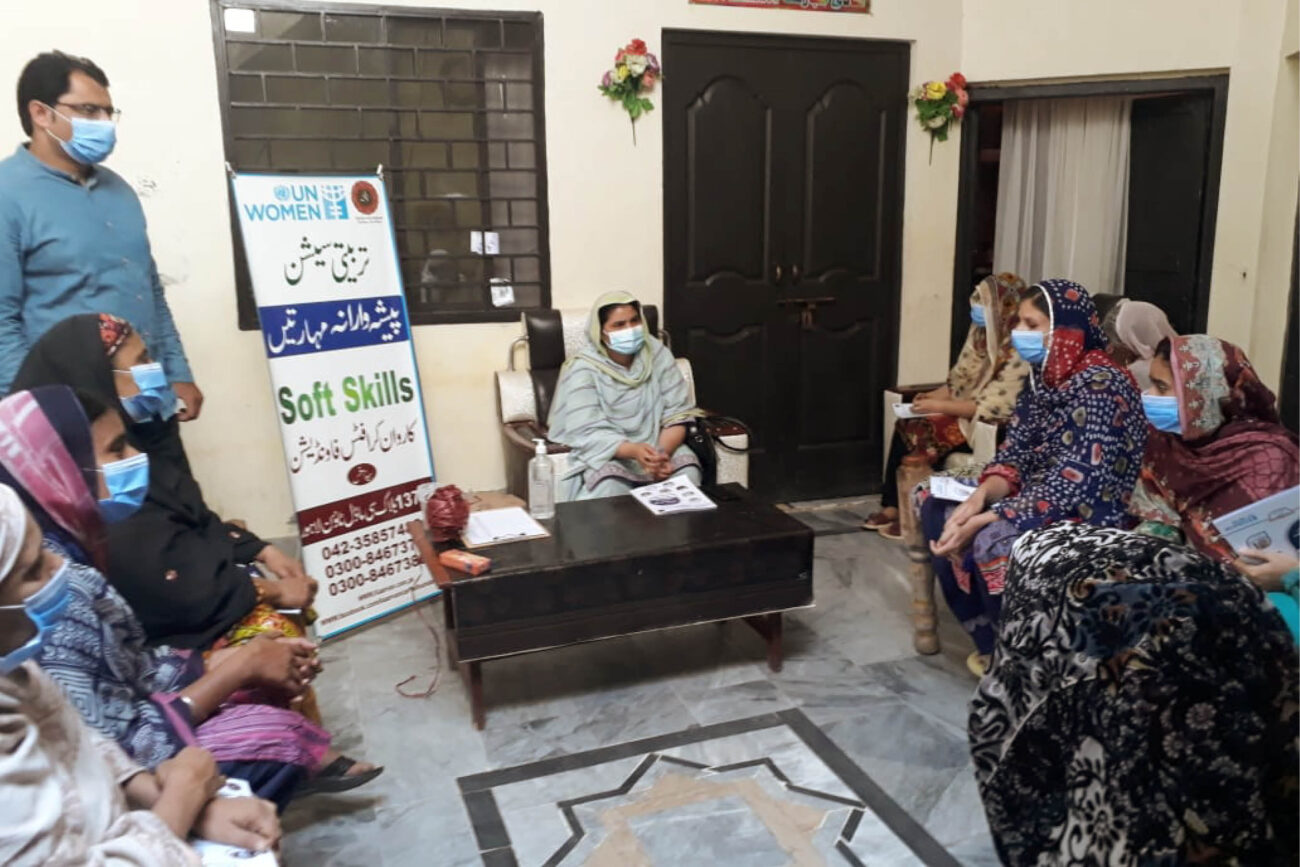The intervention “Empowered Women – Resilient Communities” designed to address four major constraints to Women Home-Based Workers including the Women with Disabilities (WWDs) in Multan in initiating or scaling their own enterprise; (i) Lack of skills development, (ii) inadequate business management skills and financial literacy, (iii) limited access to financial services and (iv) restricted access to market.
The project aimed to create an enabling environment for women and girls to participate in the economy, including as entrepreneurs, and access social protection services and financial services for improved and sustainable livelihoods.
The project improved access of 300 WHBWs and 50 WWDs including 35 Women Enterprises from Multan to resources for enhancing profitability (information, market-based skills, financial services, technology and linkages with private sector). It mobilized WHBWs and WWDs, form them into functioning groups and connect them with a range of resources (access to finance, market, skills development, and enterprise development etc.).
The objective of the baseline & Endline assessment is to gauge the impact of the project on prevalent socio-economic conditions of women home-based workers (WHBWs) and women with disabilities (WWDs) in Multan district. This activity gave a clear picture of the type of intervention and project activities that were carried out to maximize project benefits towards these women. The information collected through baseline survey leads to measure indicators and progress of women pre & post-intervention. The impact measured through an end-line survey conducted at the end of the intervention. One of the strategic ideas behind conducting this exercise is to create evidence for informed decision making and program design in future.
The purpose of conducting the baseline assessment was to analyze the prevalent socio-economic conditions and business conditions of selected women home-based workers. Kaarvan’s six-months long intervention, supported by UN Women, enabled these women to learn skills and gather knowledge around establishing micro-enterprises. The activities such as Market Linkages, Financial literacy, Micro-finance and Digital Inclusion etc. are designed to improve the baseline indicators and were analyzed during the end line study of the project.
The end line results have been very encouraging – but what needs to be seen is the sustainability of the impact that the project had just after the project end. Other important considerations and key takeouts from the intervention are:
● It was a comprehensive & inclusive Program – Economic Empowerment, Human Rights & Behavioral Change among the men in the community being an integral part of the project.
● There can be intervention designs with increased role of Community Micro entrepreneurs as a role model & change architect for the Women Home Based workers in her community.
● There is a need for integration with the Government system and schemes for sustainability.
● Economic Empowerment opportunities to women – a way towards increased empowerment.
● The project has very effectively engaged men as part of Women Empowerment Narrative – buttresses with the awareness about the rights of the women having an impact towards behavioral change of men in the household
● There is a need for long-term engagement with Women at the grass-root level for high impact and sustainable economic empowerment.








